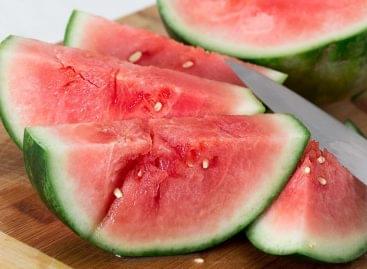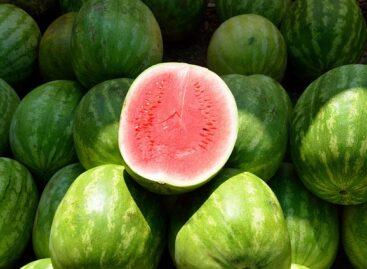National Chamber of Agriculture: Ukraine’s accession could destroy the entire EU agri-food industry
When Brussels forces Ukraine’s accession, it is playing with the livelihood of all EU producers and the EU’s food security – said Zsolt György Papp, President of the National Chamber of Agriculture (NAK), in an interview published on the Agrokult.hu portal on Thursday.

The President of the NAK emphasized: Ukraine’s possible accession to the EU definitely carries great dangers for agriculture and the food industry. “Ukraine’s accession poses a huge risk to both agricultural markets, food security and the livelihood of producers and food producers,” he said. The accession would very likely destroy the entire EU agri-food sector. Possible accession would entail significant setbacks in the agriculture of both Hungary and other EU countries, as well as serious food safety risks for consumers, explained Zsolt György Papp. The NAK President explained: Ukraine is one of the world’s leading agricultural exporters, with more than 40 million hectares of arable land. As an example, he mentioned that this is eight times the arable land of Hungary and more than a quarter of the total arable land of the EU. Ukraine has enough agricultural output to feed about 400 million people, and the country accounts for roughly 10 percent of the world’s total wheat production. Nearly 30 million tons of corn were produced in Ukraine last year, which is six times the Hungarian harvest. More than half of Ukrainian food exports go to Europe; While previously 90 thousand tons of poultry meat arrived in the EU from Ukraine annually, after the outbreak of the war this exceeded 280 thousand tons – he pointed out. According to Zsolt György Papp, the question is why the decision-makers in Brussels are pushing for accelerated accession. This question is often asked to them, together with the agricultural interest groups of many other countries – he indicated. The president of the NAK called it thought-provoking that while in Brussels they talk about helping Ukrainian agriculture and farmers, in Ukraine it is mainly Western-owned, foreign-registered mammoth companies that play a leading role in agriculture. Taking advantage of the fact that huge areas of land can be bought up and that wages there are extremely low. In addition, these Western investors install modern irrigation systems and the most advanced technologies. At the same time, the strict EU production and sustainability standards do not apply to production there, and therefore it is possible to produce cheaper, but without meeting the EU production requirements, bypassing them – he said.
Zsolt György Papp highlighted: several plant protection active ingredients are used in Ukraine that the EU banned a long time ago, even decades ago
In addition, a significant part of the pesticide trade takes place completely uncontrolled, in the black. Furthermore, the cultivation of genetically modified plants is also permitted, which is also prohibited in Hungary, for example, in the Basic Law. European Union production is very strictly regulated in all segments of the agricultural and food industry, which also imposes costs on producers, but these expectations do not apply to Ukraine – he added. Regarding the financial implications of Ukraine becoming an EU member state, the NAK president explained: the destructive effect of Ukrainian dumping flooding the EU market has already been faced in recent years, and this would increase even further. Ukrainian grain exports to Hungary jumped from $5 million before the war to $400 million in 2022 due to the easing regulations in Brussels, which caused domestic purchase prices to plummet. In addition, huge quantities of oilseeds, poultry, eggs and honey also arrived. In addition, under current EU regulations, Ukraine would receive around €85 billion from the EU Common Agricultural Policy, a quarter of the entire EU agricultural budget. And this resource would be taken away from Hungarian and other EU farmers, he pointed out.
MTI
Related news
Drought, technological competition and collaboration: the domestic melon season has begun
The 2025 Hungarian melon season starts amidst serious challenges: the…
Read more >Hungarian melons can regain their lost export markets, according to producer associations
Hungarian melons can regain their export markets, a third of…
Read more >István Nagy: the Hungarian government is not standing idly by in the drought situation
The Hungarian government is not standing idly by in the…
Read more >Related news
Drought, technological competition and collaboration: the domestic melon season has begun
The 2025 Hungarian melon season starts amidst serious challenges: the…
Read more >Leadership change at Fornetti: Nándor Szabó is the new Managing Director
Nándor Szabó will take on the role of CEO of…
Read more >Change in Zwack management: Csaba Belovai is the new CEO of Zwack Unicum Plc.
According to the decision of the owners of Zwack Unicum…
Read more >





